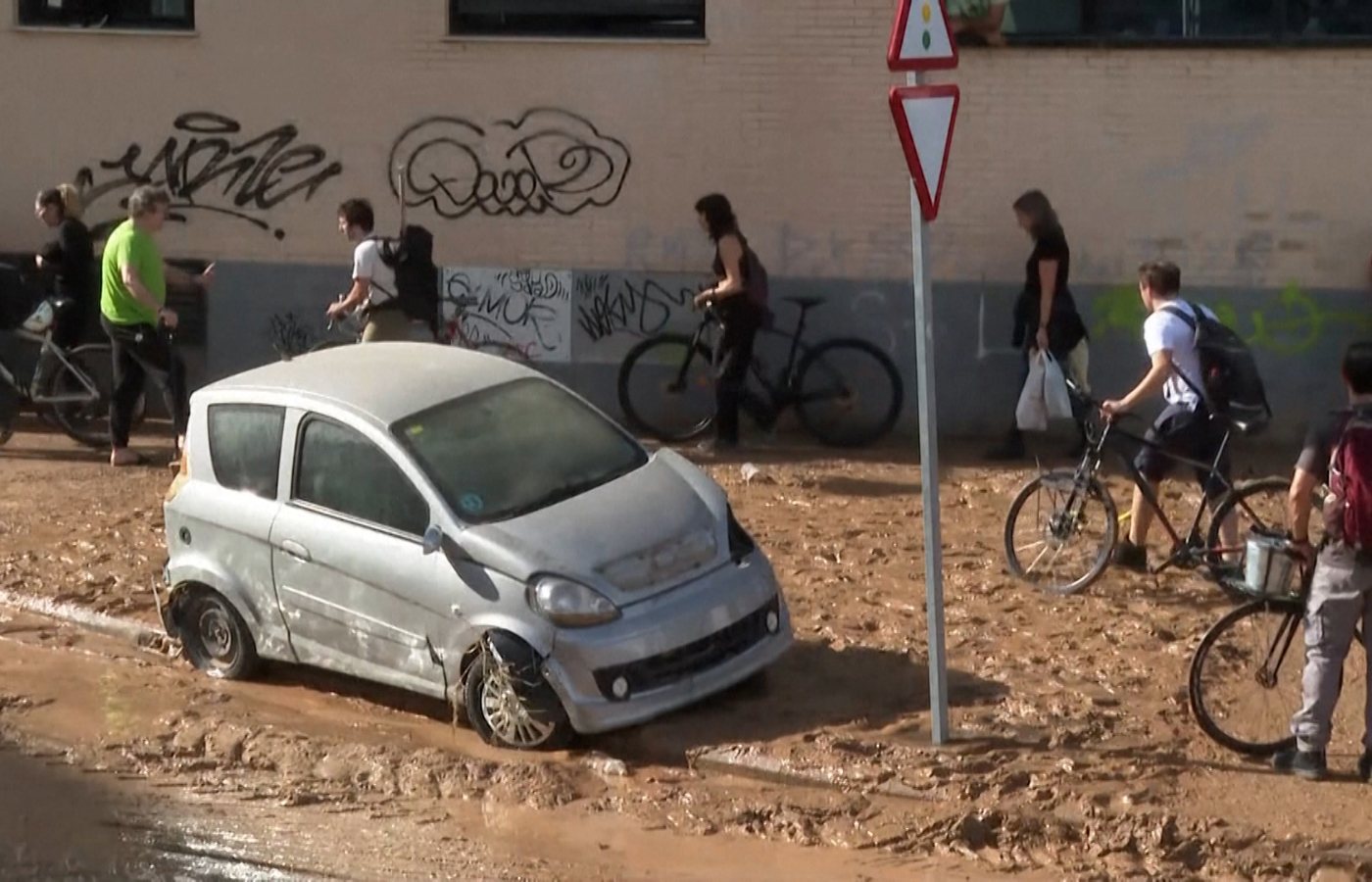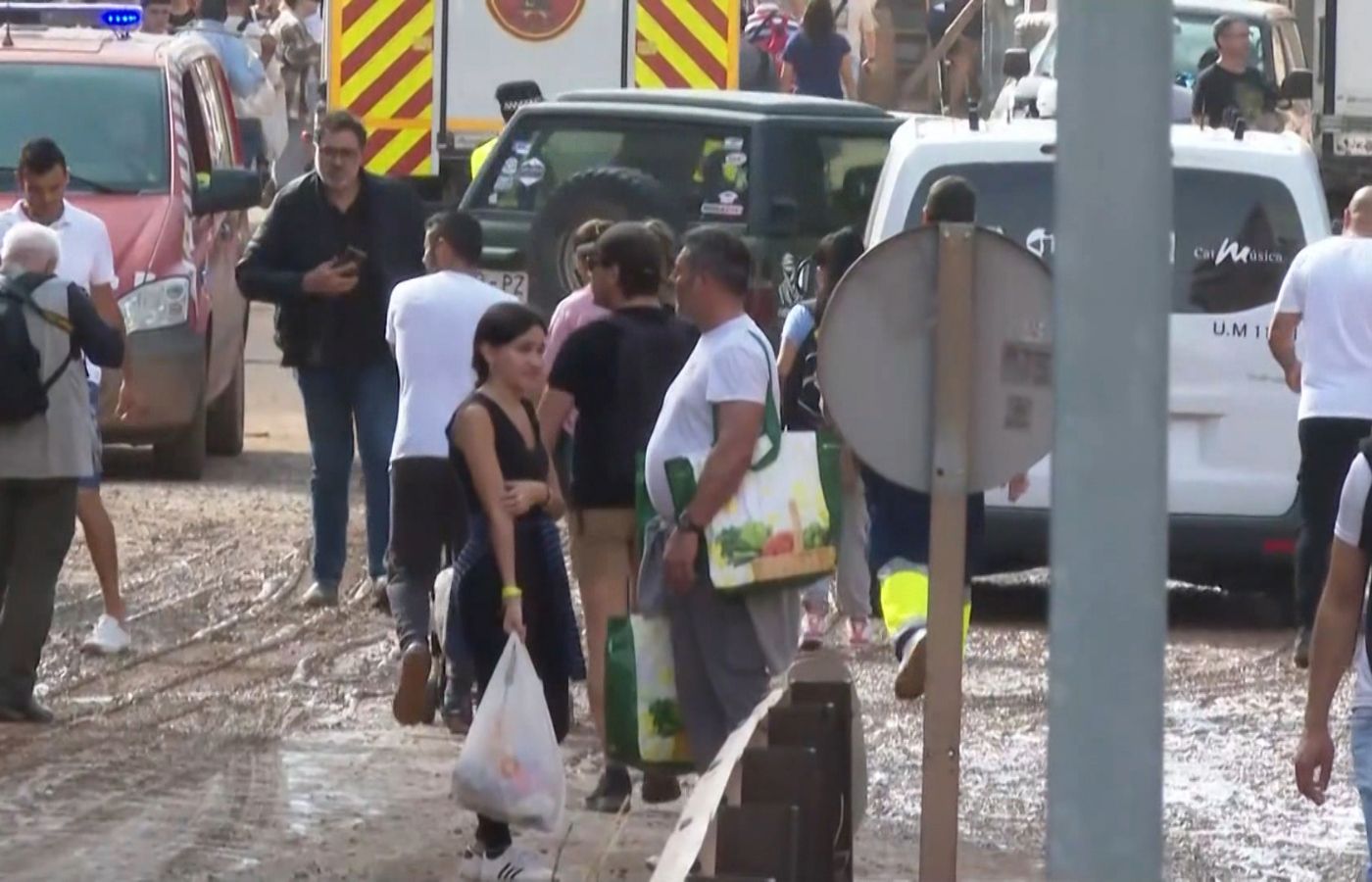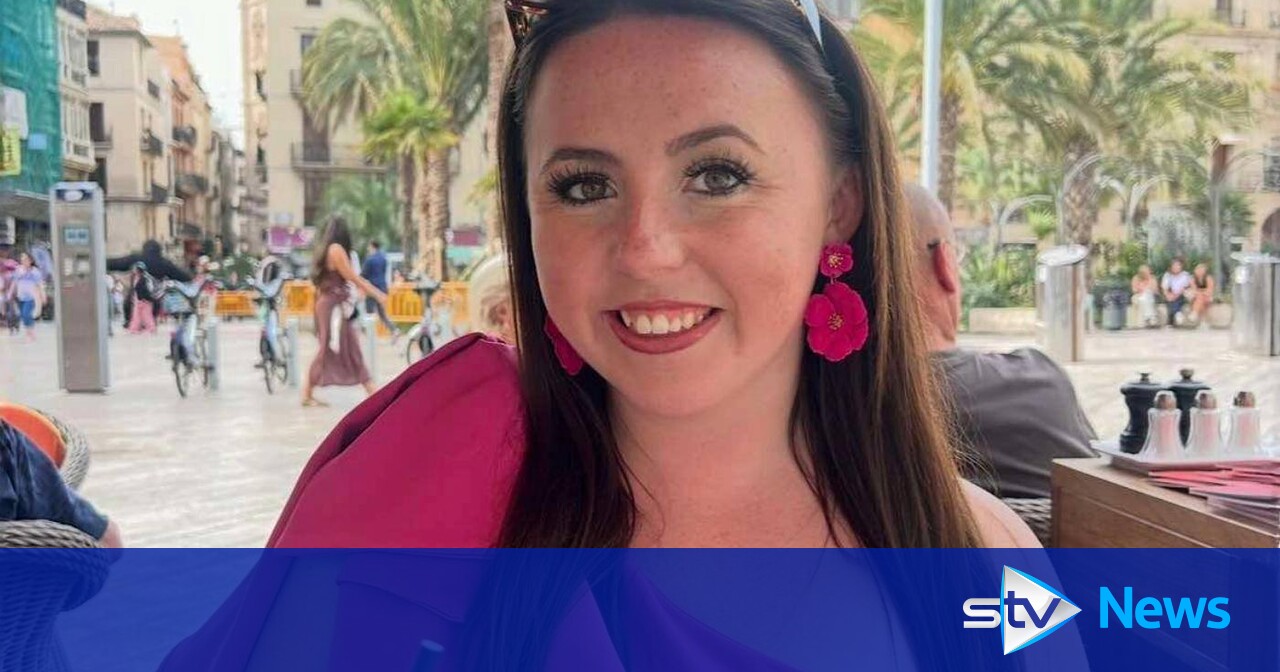A Scottish teacher living in Valencia says she is “hearing sirens all day” after flash flooding hit Southern Spain with an estimated 155 people dead.
Lucy Begley from Greenock, who works as a teacher in an English-speaking primary school in the city, said it has been a “sad experience” since the floods began.
At least 155 people are reported to have died, and others are missing after floods swept through large areas of eastern and southern Spain, authorities have said.
It is the worst natural disaster to hit Spain in recent memory.
Footage from Valencia showed mud-coloured waters tearing through streets, with cars swept away and rail services disrupted.
On Tuesday, the 29-year-old was sent home from work due to the bad weather, with villages and towns around the city centre the worst affected by flash flooding.
She told STV News: “There was no evacuation plan, but all day all I’ve heard is sirens.
“The people of Valencia are really angry with the government because, apparently, this had all been predicted around 15 hours before.
“By the time we got a message to our phones telling us to get inside and be safe, people were already trapped and stranded.”
She added: “It wouldn’t be possible to get to Madrid at the moment, in the city centre all the metros aren’t working.
“The main roads in and out of the city are all blocked. If you go north, you can leave, but I think it would be very difficult.
“I haven’t had any plan to evacuate.
“My family and friends have been reaching out, and they’re really worried because there have been fake media reports about where has been hit.
“I have a friend who went missing. She was able to contact her family through someone else’s phone the next day.
“Another friend is still stuck in her town (outside city) without any water. The road into the city has been destroyed.
“Three of my friends were stranded overnight in their cars. It’s been a very sad experience.”
 FRAFPE – AFP EBU
FRAFPE – AFP EBUOne person from Glasgow affected by the flooding, who is on holiday in Arboleas with her family, described the storm as “scary”.
She said: “It was colder here on Monday than it was in Glasgow.
“It was a dried-up river that had flooded. It filled very quickly with fast-flowing water and was quite scary.
“There was a policeman at each side of the bridge across the river to make sure no one attempted to cross. We have had no water here for two days.
“Galassa or the Ayuntimiento arranged for a water tanker to sit on our main street in the village where we could collect fresh water. It’s an inconvenience, but we’re not complaining.
“The rain started around 4pm on Monday, and thunderstorms followed soon after, lasting all through the night.
“The lightning was tremendous and lit up the sky. It would have been amazing to watch, but we had our shutters and blinds closed so our dog wouldn’t be disturbed too much.
“It was a terrible storm, but we survived. We are very fortunate compared with Valencia, where the loss of life has been tremendous.”
 FRAFPE – AFP EBU
FRAFPE – AFP EBUSpain’s worst natural disaster this century left a trail of destruction and fears that more horrors will be uncovered from the layers of mud that walls of water left in their wake.
An unknown number of people remain missing.
“Unfortunately, there are dead people inside some vehicles,” said Spain’s transport minister Oscar Puente.
The widespread damage recalled the aftermath of a hurricane or tsunami.
Cars piled on one another, trees were uprooted, power lines downed, and household items all mired in mud that covered streets in dozens of communities in the hardest-hit region of Valencia, where at least 92 people died.
Regional authorities said late Wednesday that no one was left stranded on rooftops or in cars in need of rescue after helicopters had saved some 70 people.
“Our priority is to find the victims and the missing so we can help end the suffering of their families,” Spanish prime minister Pedro Sanchez said after meeting with regional officials and emergency services in Valencia on Thursday, the first of three official days of mourning.
In Paiporta, a community of 25,000 next to Valencia city, mayor Maribel Albalat said that 62 people had died.
“(Paiporta) never has floods, we never have this kind of problem. And we found a lot of elderly people in the town centre,” Mr Albalat told national broadcaster RTVE.
“There were also a lot of people who came to get their cars out of their garages … it was a real trap.”
While the most damage was inflicted on municipalities near the city of Valencia, the storms unleashed their fury over vast swathes of the south and eastern coast of the Iberian peninsula.
Two fatalities were reported in the neighbouring Castilla La Mancha region and one in southern Andalusia.
The regional president for Castilla La Mancha, Emilion García-Page, said that at least one Guardia Civil police officer was among several missing people in the town of Letur.
Homes were left without water as far southwest as Malaga in Andalusia, where a high-speed train derailed on Tuesday night. None of the nearly 300 passengers were hurt.
The storms spawned a tornado in Valencia and a hail storm that punched holes in cars in Andalusia.
Heavy rain continued on Thursday farther north as the Spanish weather agency issued a red alert for several counties in Castellon, in the eastern Valencia region, and Tarragona in Catalonia.
“This storm front is still with us,” the prime minister said. “Stay home and heed the official recommendation, and you will help save lives.”
More than 1,000 soldiers from Spain’s emergency rescue units joined regional and local emergency workers in the search for bodies and survivors.
The soldiers had recovered 22 bodies and rescued 110 people by Wednesday evening.
“We are searching house by house,” Angel Martinez, with a military emergency unit, told Spain’s national radio broadcaster RNE from the town of Utiel, where at least six people died.
Spanish news agency EFE reported that some 150,000 people in Valencia were without electricity on Wednesday, but roughly half had power by Thursday.
An unknown number did not have running water and relied on whatever bottled water was available.
The region remained partly isolated, with several roads cut off and train lines interrupted, including the high-speed service to Madrid, which officials say won’t be repaired for two to three weeks.
Spain’s national weather service said it rained more in eight hours in the Valencian town of Chiva than it had in the preceding 20 months, calling the deluge “extraordinary.”
Follow STV News on WhatsApp
Scan the QR code on your mobile device for all the latest news from around the country


